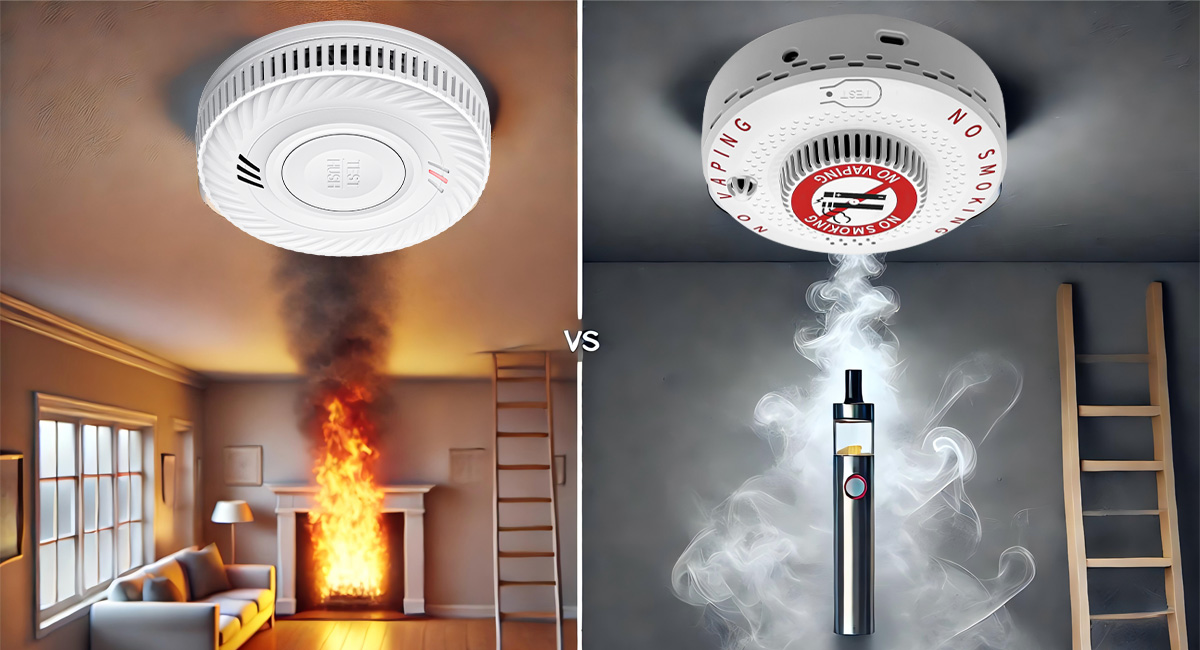With vaping on the rise, the need for specialized detection systems has become crucial. This article dives into the distinct functionalities of electronic vape detectors and traditional smoke alarms, helping you choose the right solution for your safety needs.

In the world of safety and security, smoke alarms have long been the go-to devices for detecting fire and smoke hazards. However, with the emergence of vaping, a new type of device has entered the market—the electronic vape detector. While both devices aim to ensure safety, they cater to different needs. Here, we break down the differences to help you better understand each product.
1. Purpose and Functionality:
• Electronic Vape Detectors: Specifically designed to identify vapor particles from e-cigarettes. They utilize advanced sensors to detect vaping activity, making them ideal for schools, offices, and public spaces where vaping is restricted.
• Smoke Alarms: Built to detect smoke particles from fires. They are essential for home and business safety, providing early warnings in case of fire hazards.
2. Technology and Sensitivity:
• Vape Detectors: Employ cutting-edge sensor technology to distinguish between vapor and smoke, ensuring accurate detection of vaping without false alarms from other particles.
• Smoke Alarms: Typically use ionization or photoelectric sensors to detect smoke. They are sensitive to different types of fires, from smoldering to flaming, ensuring comprehensive fire detection.
3. Design and Installation:
• Vape Detectors: Often have a sleek, modern design with LED indicators. They are compact, making them easy to install discreetly in various settings.
• Smoke Alarms: Characterized by their round, white appearance. They are designed for ceiling or wall installation in homes, offices, and commercial spaces.
4. Applications:
• Vape Detectors: Ideal for environments like schools, universities, offices, and public restrooms, where vaping poses health and disciplinary concerns.
• Smoke Alarms: A critical component of fire safety systems in residential, commercial, and industrial buildings.
Understanding the differences between these devices helps ensure you are equipped with the right detection system for your needs. While smoke alarms remain crucial for fire safety, electronic vape detectors offer a specialized solution for environments combating vaping issues.
Post time: Sep-29-2024




